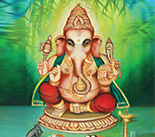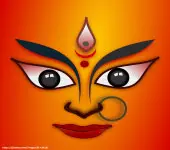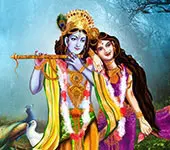This audio tells you about - 1. How Shastras sometimes apparently contradict each other 2. Why Rishis want to know just the essence of shastras.
What are Shastras?
Shastras in Hinduism are teachings to help people live righteously and grow spiritually. These texts can be found in a variety of forms, such as Vedas, Smritis, Puranas, and Itihasas, and Dharmashastras.
What are books such as Nirnaya Sindhu and Dharma Sindhu called in Dharmashastra?
In Dharmashastra, the texts such as Nirnaya Sindhu and Dharma Sindhu belong to a category called Nibandha granthas. They are a ready reference to principles of righteous living according to Hinduism
What is the difference between Shruti and Smriti?
Shruti means a group of scriptures comprising of Veda Samhitas, Brahmanas, Aranyakas, and Upanishads. They are eternal knowledge revealed to the Rishis in the format of mantras. No authorship can be attributed to them. The Smritis, written by Rishis, are expositions based on the Shruti.
How Srimad Bhagavata is different from other Puranas?
Emphasis in Srimad Bhagavata is on bhakti. Srimad Bhagavata is the essence of all the other Puranas. Srimad Bhagavata was revealed to Vyasa in the state of samadhi. The other Puranas are compilations of pre existing legends.
Why should Suta know the secrets of the Puranas?
Suta was the favorite student of Sage Vyasa. There are some secrets that Gurus teach only to their favorite students. Suta learned from many Gurus as well.
Are Rishis worried about themselves?
Rishis are not worried about themselves. They are worried about the common man of Kaliyuga. He will be less intelligent and short-lived. He will be overburdened with day-to-day problems. He will lack interest in observing dharma. Rishis are looking for a solution for him.
Quiz
What are the Vaishnavite Saints of Tamil Nadu called?Transcript
(Click here to read more)
The first Suta, Lomaharshana, the direct disciple of Sage Vyasa was narrating Puranas to Rishis in Naimisharanya during their thousand-year-long-yaga. He was killed by Lord Balarama. There was a misunderstanding and the Lord in a fit of anger killed Lomaharshana. But when he realized what had happened, the Lord transferred all the knowledge and qualities of Lomaharshana onto the body of his son, Ugrashrava. He also blessed Ugrasharava with longevity till the end of the yaga. After this, Ugrashrava continued narr....
Transcript
(Click here)
The first Suta, Lomaharshana, the direct disciple of Sage Vyasa was narrating Puranas to Rishis in Naimisharanya during their thousand-year-long-yaga.
He was killed by Lord Balarama.
There was a misunderstanding and the Lord in a fit of anger killed Lomaharshana.
But when he realized what had happened, the Lord transferred all the knowledge and qualities of Lomaharshana onto the body of his son, Ugrashrava.
He also blessed Ugrasharava with longevity till the end of the yaga.
After this, Ugrashrava continued narrating the Puranas in the place of his father.
See what all can be done with yogic power.
Balarama was a mahayogi.
Of course, he is avatara of Adishesha.
But now he is in human form.
Even then he had so much power in him.
He had used Brahmastra to kill Lomaharshana.
Then after realizing the misunderstanding, transferred everything that he had onto his son’s body.
Why did Balarama not revive Lomaharhana himself?
Then it would have been insult to Brahmastra.
But there was a small difference between Lomaharshana and his son Ugrashrava.
Lomaharshana never left Naimisharanya, ever.
But Ugrashrava, went to the banks of Ganga when Shukadeva was narrating Shrimad Bhagavata to Raja Parikshit, listened, learned, then came back to Naimisharanya to narrate the same to the Rishis.
This was towards the end of the thousand-year-long yaga.
Rishis had a strange demand.
We want to listen to the essence of all shastras, essence of all teachings.
They had heard all other Puranas by then.
Shastras are Puranas.
Teachings based on historical incidents are called Puranas.
Historical incidents narrated so that people can learn what is dharma and what is adharma.
The shastras are sometimes apparently contradictory also.
One shastra will say do this; another shastra will say don’t do this.
For example, the performer of a yajna has to take a deeksha on the previous day.
Deeksha is upavasa.
From that time it is as if the Devatas of the particular yajna are present in the yaga vedi.
They have come like guests.
They are given offerings only on the next day.
Till that time, can the performer of the yajna, the yajamana, can he take any food?
Naturally, no, because there are guests at home.
They are not offered anything till the next day.
How can the host alone have food?
This is what you might think.
But there is a problem here.
If you abstain from taking food on the previous night of any ritual, then it is a characteristic of pitru-karma.
So the yajna going to be performed is a Deva-karya and it may end up looking like a Pitru-karya.
You are changing the nature of the ritual.
This is one argument.
What to do now?
The Yajamana can take something which the Devas don’t consume such as what grows underground.
So there are two options here.
Either ignore the argument that it will become a Pitru-karma and do complete fasting, incurring the risk of diluting the nature of the yajna, or take something that Devas don’t take.
But then, host is taking food when the guests are not given anything.
Such confusions are there in shastras.
There are clear solutions.
But it can be confusing for many people.
So Rishis did not want to get into all these anymore.
They just wanted the essence; which will not confuse.
So they asked Suta one question.
They made one demand.
Shaunaka Maharshi was the kulapati of the yajna.
He told Ugrashrava: we have been hearing the Puranas from your father and you as well.
We have learned a lot from you both.
You have been so kind to us, telling us so much about the incidents of the past.
But shastras are endless.
Nobody has seen everything.
Those Rishis who have told us something, that is as per what they have experienced.
Their experiences, they have shared with us.
Nobody can say that I have seen everything.
Nobody can say that this is everything.
Sometimes, the Rishi-vachanas also apparently look contradicting each other.
Because of all these, doubts come in the mind.
Is this knowledge authentic?
If it is authentic, then why is someone else contradicting it?
Both arguments sound convincing.
So now, you have seen all the shastras.
So far, you told us whatever we asked for.
We asked you: tell us about Shiva; you told us Shiva Purana.
We told you: tell us about Vishnu; you told us Vishnu Purana.
But now, what we want from you is, since you have learned all the shastras, tell us their essence.
What you have understood as their essence, essence of all shastras, essence of all teachings.
We know, so far you didn’t tell us this because we never asked for it.
We know you are our well-wisher.
You are here for our benefit.
Now you please tell us the essence of all teachings, which you have so far kept hidden from us.
Please tell us that now.
Shaunaka Maharshi told Suta.
Recommended for you
Mantra For Protection of your child

maa te kumaaram raksho vadheenmaa dhenuratyaasaarinee. priyaa dhanasya bhooyaa edhamaanaa sve gri'he. ayam kamaaro jaraam dhayatu deerghamaayuh' . ....
Click here to know more..Whose side Lord Ganesha is on?
 Click here to know more..
Click here to know more..
Aparajita Stotram

श्रीत्रैलोक्यविजया अपराजितास्तोत्रम् । ॐ नमोऽपराजिता�....
Click here to know more..
English Topics
Bhagavatam
Click on any topic to open
- 65 Bhagavan's External Deeds
- 64 Is the Body Yours?
- 63 What's So Great About The Stories Of Sri Krishna
- 62 What To Do If You Just Don't Have Interest In Bhagawan
- 61 Which God Should I Worship?
- 60 How To Observe Dharma Properly
- 59 Devotee's progress
- 58 Which Guruji Can You Trust
- 57 Bhagawan Is Beyond Human Comprehension
- 56 The Missing Piece: Why Your Spiritual Practices Are Not Working
Please wait while the audio list loads..
30
Ganapathy
Shiva
Hanuman
Devi
Vishnu Sahasranama
Mahabharatam
Practical Wisdom
Yoga Vasishta
Vedas
Rituals
Rare Topics
Devi Mahatmyam
Glory of Venkatesha
Shani Mahatmya
Story of Sri Yantra
Rudram Explained
Atharva Sheersha
Sri Suktam
Kathopanishad
Ramayana
Mystique
Mantra Shastra
Bharat Matha
Bhagavatam
Astrology
Temples
Spiritual books
Purana Stories
Festivals
Sages and Saints
